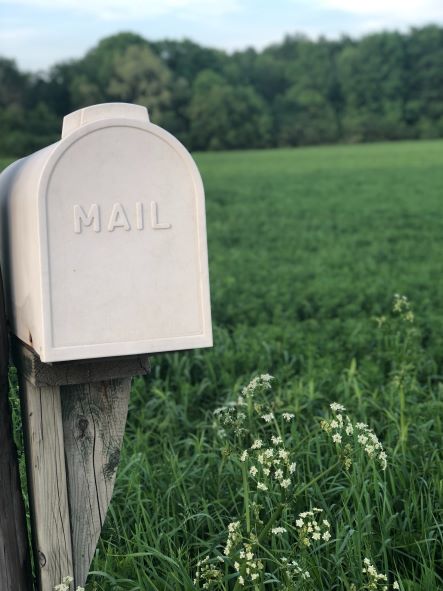
Blog
The long term impact of winning research grants
early in your career
If you’re an early career researcher, you probably already know that securing a research grant as a PI is one of the key things you need to do in order to progress your career and land a permanent position. So you probably don’t need to be told this again.
But what you might not know is that securing a research grant early on in your career will make you far more likely to continue to win research funding throughout your career.

Research conducted by Thijs Bol, Mathijs de Vaan, and Arnout van de Rijt has highlighted the clear correlation between early funding success for individual researchers and continuing research funding success at later stages of their career. They argue that this points to a strong presence of ‘The Matthew Effect’ in research funding.
Let’s take a closer look at the study, and then work out what this means for your personal research goals.
What is the Matthew Effect?
In order to understand the results of the study, let’s first clarify the meaning of ‘The Matthew Effect’. In a nutshell, it’s a phenomenon whereby those who start off with an advantage continue to accumulate further advantages, and those in a disadvantaged position become further disadvantaged over time.
The Matthew Effect has long been identified as a key pattern shaping academic success: we know that a researcher’s past success tends to positively affect their achievements in the future.
What Bol and his colleagues set out to investigate is whether this effect is present in the allocation of research funding, and if so, how this can be explained.
The Matthew Effect in Research Funding
The results of the study showed that there is unambiguously a strong Matthew Effect when it comes to research grant success.
The authors used the research funding success of early career researchers in The Netherlands as a case study. Using data on researchers’ early career and midcareer grant success, they compared two groups. One group consisted of researchers who received evaluation scores that narrowly missed out on getting funded. The other group involved researchers who received scores that were only just above the threshold score necessary to get funded.
This is a particularly powerful comparison as the difference between scores near the funding threshold are extremely minor, meaning that the quality of researchers’ profiles and ideas will be almost identical.
By making this comparison, the study identified 5 key trends.
1. Winning grants early means you’ll win more in the future
First, researchers who win an early career grant by a narrow margin are 2.5 times more likely to win a mid-career grant compared to those who narrowly miss out on winning an early career grant.
2. Getting rejected makes you less likely to apply for future grants
Second, the increased probability of winning a mid-career grant as a result of winning an early career grant can be substantially accounted for by increased application chances. In other words, researchers who win an early career grant are more likely to decide to apply for a mid-career grant compared to those who have been unsuccessful. And these differences in application chances are not a result of non-winners leaving academia or moving country.
3. Early career grants increase your scores in future grant evaluations
Third, the study tested the hypothesis that winners of early career grants receive better evaluations than non-winners when applying to future grants because their earlier grant has enabled them to achieve greater scientific impact and outputs.
They found that this not to be the case; early career grants did not significantly increase measurable dimensions of scientific outputs. Which means that improved chances of grant success can be attributed to the status of having won an early career grant.
A further possibility is that early career grantholders are at an advantage due to having extra time and resources that enable them to write higher quality proposals for mid-career grant competitions.
4. The funding gap between grant winners and non-winners increases over time.
Fourth, the analysis identified the long-term impact of early grant success by showing that those who have narrowly won an early career grant do not only receive more research grants in the future, but the difference in grant winnings gets increasingly larger over time.
In the case of Dutch researchers, those who have narrowly won an early career grant receive an average of €40,000 more in research funding 4 years after their grant, compared to those who have narrowly missed out on the early career grant.
And after 8 years, this difference has increased to €180,000 – a clear illustration of The Matthew Effect.
5. A research grant brings long term career benefits
And finally, the study demonstrates that securing an early career grant has a major positive impact on a researcher’s long-term career.
The analysis showed that being awarded an early career grant increases the long-term prospects of being awarded a full professorship by 47%.
The 2 processes driving the Matthew effect in research funding.
The findings demonstrate that there are two mutually reinforcing processes which give early career grantholders an increasing advantage over non-winners as their career progresses.
On the demand side, researchers who already have research grant success on their CVs are evaluated more positively compared to those who don’t.
And on the supply side, researchers who have enjoyed grant success are more likely to put themselves forward for other grants compared to researchers whose grants haven’t been funded.
What does this mean for me, as a researcher?
Without a doubt, the study points to the simple fact that if you’re a researcher that’s yet to win their own research grant, you need to do this as soon as you possibly can, regardless of your career stage.
And this isn’t just important for allowing you to lead your own research projects, it will have a striking impact on your chances of securing a permanent position and any future promotions.
If you’ve not managed to secure your own research grant yet, this might be pretty discouraging to hear.
But there are reasons to be optimistic.
If you’re an early career researcher, the good news is that you’re at the best stage of your career to win a research grant. Securing research funding at this stage is likely to bring you long term benefits that will accumulate over time. So whether you’re preparing your first grant application or you’re feeling disappointed after multiple rejections, going ahead and (re-)submitting (soon) is a no brainer.
If you’ve completed your PhD a few years ago and still haven’t secured research funding, there’s still something positive to take away from the study’s findings. Decreased participation in future grant applications was a major reason for unsuccessful grant applicants having diminishing research and career opportunities over time. The good news is that actively applying for research grants is something you have control over, and the fact remains that it’s worth your time to either re-submit that early career grant or apply for a mid-career grant.

How can I help?
Writing research grants is hard, time-consuming work requiring you to produce a proposal that will be compelling and memorable to reviewers.
Achieving this on your own is very challenging, especially when your colleagues and mentors don’t have time to offer you detailed feedback. This makes it hard to assess what impression your proposal is making on a reviewer.
This is where I come in: I consider your research grant from the perspective of a highly trained reviewer, but one that is not a subject-specialist. In this way, I can tell you what impression your writing makes on your toughest audience.
Interested in finding out more?
We can arrange to have a free informal Zoom call where you can tell me about your grant project and ask me anything about how I work. Simply fill out the contact form to arrange a time for us to meet.
I’m a friendly person to speak to and never push people to make any commitment, so don’t hesitate to get in touch, it would be lovely to hear from you!
Contact form:

Stay in touch via my newsletter
Join a growing community of researchers who are passionate about getting their research funded by subscribing to my Newsletter.
By signing up you’ll receive regular grant writing tips from me, along with updates on my free workshops & grant support services.